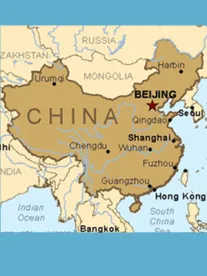The Chinese government has begun to unveil a legal framework for implementing the national security policies of President Xi Jinping and his administration. These policies are an integral part of a tightening security environment in China and a growing assertiveness of the Chinese government in its dealings with foreign governments and businesses. In recent months, the government has unveiled a sweeping new national security law, released a draft network security law, enacted a new counterterrorism law, and introduced strengthened national security-related provisions in legal measures governing China’s expanding free trade zones. This focus on national security has important implications for companies and governments with current or potential interests in China.
1. China Enacts Counter-Terrorism Law
Despite a temporary delay due, in part, to concerns in the international community about draft language, the Standing Committee of the National People’s Congress (NPC), China’s top legislative body, enacted a Counter-Terrorism Law (see the Chinese version here), which took effect on January 1, 2016. The adoption of this law, a year after the first draft was released for public comment, followed closely the adoption of a new National Security Law and the issuance of a draft Network Security Law (both discussed later in this update), as well as other legislative initiatives related to national security and cybersecurity.
The Counter-Terrorism Law reinforces the government’s broad powers to investigate and prevent incidents of terrorism and requires citizens and companies to assist and cooperate with the government in such matters. The law imposes additional and specific obligations on companies in certain sectors. Non-compliance or non-cooperation can lead to significant penalties, including fines on companies and criminal charges or detention for responsible individuals.
The official Chinese version of the law can be found here, and an unofficial English translation is available here.
2. China Issues Draft Network Security Law
Close on the heels of a sweeping new National Security Law, the Standing Committee of the National People’s Congress released in December for public comment a very significant draft Network Security Law (“Draft Law”), also referred to as the draft Cybersecurity Law.
The Draft Law is the government’s latest effort to consolidate existing security-related requirements and grant government agencies more security-related powers. On its face, the law does not discriminate against foreign products and services. However, as it is designed to “safeguard cyberspace sovereignty and national security,” the Draft Law could be implemented in ways that create additional hurdles for foreign companies seeking to access China’s vast market if and when it comes into effect.
It is drafted to govern most activities that take place over “computer networks,” defined broadly. Specifically, the Draft Law attempts to: (1) sort out and develop, in a more systematic way, existing but scattered legal requirements (e.g., obligations of network users to provide real identities and obligations of network operators to protect personal information of users); and (2) implement new, high-priority mandates such as provisions on the protection of critical information infrastructure.
Foreign investors should pay particular attention to a number of proposals contained in the Draft Law including those relating to: (1) procurement-related security reviews for network products and services; (2) data localization requirements; (3) government national security standards; and (4) data privacy requirements.



 />i
/>i

